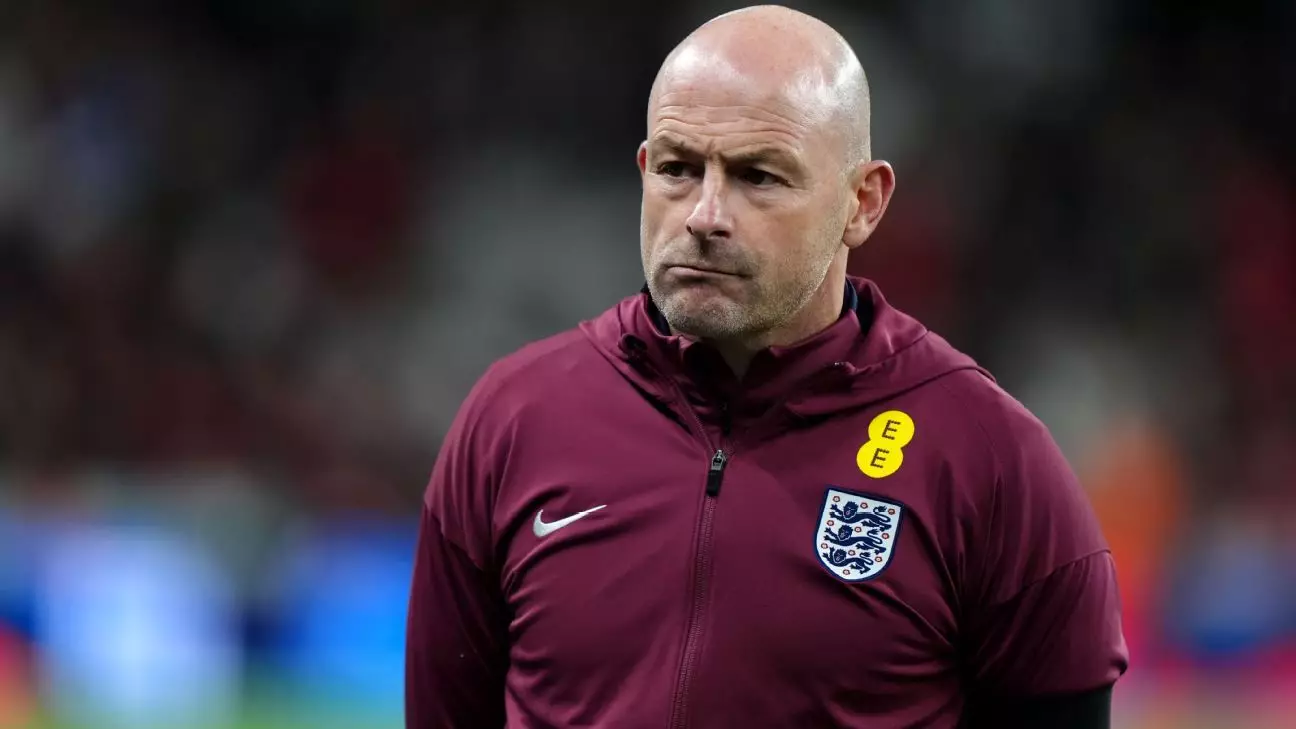In the world of international football, tactical decisions can either elevate a team’s performance or lead to embarrassment. This was starkly evident during England’s recent UEFA Nations League match against Greece, where interim manager Lee Carsley showcased an audacious attempt to integrate the nation’s best young talents. The outcome was a disheartening 2-1 loss, raising questions about strategy, selection, and the complex dynamics of a team filled with attacking prowess. Carsley’s initial vision of unleashing a footballing revolution rapidly descended into chaos, as England struggled to find cohesion and balance against a spirited Greek side.
Prior to the match, anticipation buzzed among fans and pundits alike regarding how Carsley would align his squad, which boasted stars such as Bukayo Saka, Jude Bellingham, Phil Foden, Cole Palmer, and Anthony Gordon. Instead of crafting a coherent system that maximized the talents of these players, the manager opted for an unconventional formation that ultimately left England disorganized. With Harry Kane sidelined due to injury, the decision to employ multiple creative players without clear roles led to a tactical mishmash. The players, while individually talented, became isolated in their roles, missing the critical connections that define successful attacking football.
Carsley’s attempt to flood the midfield with attacking options backfired as the team failed to establish any rhythm or strategy. The Greeks capitalized on England’s disarray, demonstrating a level of tactical discipline and motivation that often evades top-tier teams. England’s only genuinely threatening moment came seconds into the game with a Bellingham shot, but this was merely a precursor to a lackluster performance that produced minimal results.
England’s defensive lapses were alarmingly evident throughout the match. Players like Declan Rice, who typically anchor the midfield, found themselves overwhelmed as attacking players vacated their positions in pursuit of glory. Carslee’s liberal approach meant that Rice was frequently left to handle the defensive conundrums generated by the relentless Greek attacks. The balance between offense and defense is crucial, yet England appeared to disregard this fundamental principle, inviting pressure and chaos into their own half.
The two goals scored by Greece should have signaled a wake-up call to the coaching staff regarding the impending danger. The Greek side, ranked 48th in the world, demonstrated clinical precision, scoring twice while having the ball in the net on three additional occasions. These statistics are a testament to their remarkable effectiveness and England’s glaring lack of organization.
Despite their recent failures to qualify for major tournaments, Greece entered Wembley with a spirit and determination that overwhelmed their English counterparts. Their players understood the significance of the occasion and rose to the challenge, beautifully executing their game plan. Vangelis Pavlidis, in particular, emerged as a standout figure, clinching the winning goal in stoppage time to make history for his nation. This was not merely a victory; it was a statement—a reminder of the unpredictability of football.
The absence of a cohesive strategy from England made their defeat all the more painful. Carsley acknowledged post-match that abandoning a tried-and-true tactical structure for reckless experimentation was a miscalculation. The eagerness to try something different became an unfortunate script for disaster as the team’s collective lack of understanding became glaringly apparent.
As England prepares for its next match against Finland, the conversation around Carsley’s future as the permanent manager has intensified. Following his recent victories over the Republic of Ireland and Finland, many saw his trajectory as upwards. However, this loss reignited doubts surrounding both his judgment and the broader question of whether England’s wealth of attacking talent can harmoniously coalesce on the pitch.
Defeating a lower-ranked opponent at home is unacceptable for a nation with aspirations of footballing grandeur. Coaches and players alike must reflect on the lessons learned from this match, ensuring that the blend of attacking prowess does not overshadow the essential need for tactical balance and defensive stability.
Ultimately, this match has offered critical insights into England’s approach as they move forward. It seems clear that the debate over how to best utilize an array of attacking stars may finally receive closure, concluding that without unity and structure, even a team brimming with individual ability can falter spectacularly on the grand stage.

